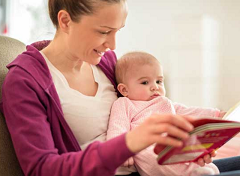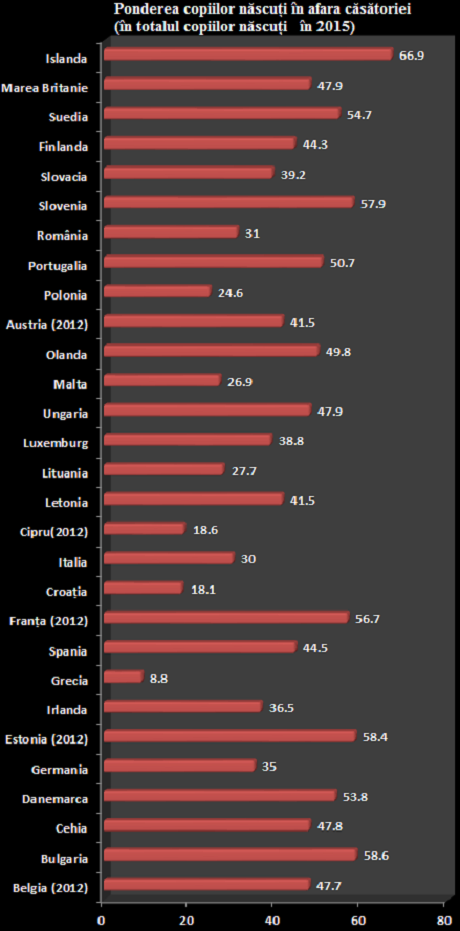 The Parliament voted on Tuesday, with an overwhelming majority, the redefinition of the family in the Constitution.
The Parliament voted on Tuesday, with an overwhelming majority, the redefinition of the family in the Constitution.
The amendments do not concern though only the explicit mention of the male-female couple which should be the basis of marriage. They also ignore the situations and state of affairs for both parents and children who live, all or some of them, outside a legalized marriage.
How much connection to the demographic reality does the traditional family have in a country where almost a third of children are born out of wedlock – consensual unions, single-parent families (especially single mothers)?
Here is the new definition proposed by the Parliament:
„The family is founded on the freely agreed marriage between a man and a woman, on their equality and on the right and duty of parents to ensure the raising, education and training of children”
And here is the factual situation:
Before 1990, divorces and especially births outside a marriage were exceptions:
- Only 3-4% of children were born out of wedlock
- 75% of children were born in the first marriage
This behaviour changed immediately after the Revolution, and both became widespread. Neither the divorce nor the baby born out of wedlock are stigmatized but have become a widespread phenomenon.
Ultimate celibacy, cohabitation and single motherhood are becoming increasingly widespread, and statistical data confirm an accelerated abandonment of social conventions applied before 1990.
Thus, in 2013 there was registered a record number of over 70,000 children born out of wedlock (according to the national statistics methodology, these are children born to mothers who are not married), according to the INS data:
*
- Births
- Total number of children born
- Children born out of wedlock
*
2013 was also the year with the highest ratio between the two categories of children.
While the rate of children born out of wedlock in 1989 was around 3%, it already increased in 1992 to about 15%, in 2010 to 27.69%, and in 2013 to the record of nearly 33% children born out of wedlock:
*
- Children born within a marriage (% of total births in a year)
- Out-of-wedlock births (% of total births in a year)
*
There are no detailed studies to know precisely the proportion of such births acknowledged, but we should mention that we have a broad and worrying phenomenon for juvenile mothers.
It should also be noted that there is a higher percentage of out-of-wedlock births in rural areas (about 33% of all births in rural areas in 2010), which contradicts the perception that traditional values have been better preserved at the countryside.
The percentage at the national level is below the European average, which exceeded 40% in 2012 (according to Eurostat), with the mention that these demographic behaviours changed a few decades before Romania:
*
- Rate of out-of-wedlock births (of total number of children born in 2015)
*
Back to Romania, it should also be noted that by total allowances for supporting families, out of the 277,624 beneficiary families in 2015, only 20.3% were single-parent families.
Marital status of the population, snapshot from the 2011 census
Legal marital status (of persons aged 15 and over)
Out of the total number, 9,687 were married, and 9,580 had another marital status:
- Unmarried – 7.677 million
- Married – 9,687 million
- Widow – 1,902 million
- Divorced – 845,882
- Information unavailable – 9.690
Actual civil status:
People living in a consensual union – 828,122, of whom there are approximately 10,000 people who are also married on paper.












